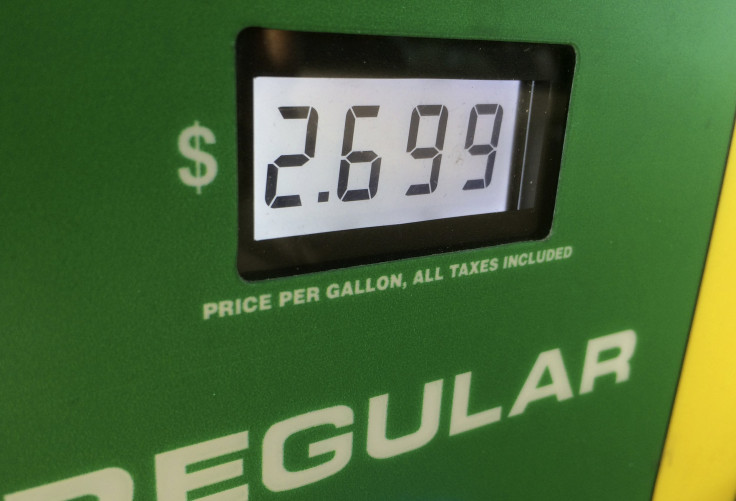Gas Prices 2014: Relief At The Pump For Motorists Means Pain For State Governments

Motorists may be finding relief at the pump with gas prices plunging, but states are hurting from declining revenues. The drop, which began in the second half of 2014, is causing some states to think about raising gas taxes to make up for the lost revenue.
States have for years relied on gas taxes to help pay the bills, especially after the 2008 financial crisis drove down property values and hurt tax revenues associated with home ownership. New York has the highest tax at 50.48 cents per gallon, while Alaska has the lowest at 12.4 cents per gallon. States such as North Carolina, which has an above-average gas tax of 36.75 cents per gallon, are heavily dependent on the tax for infrastructure. Of the revenues the state collects on gas taxes, 75 percent of it goes to its highway fund, which is used to maintain, resurface and build roads. The other 25 percent goes to a "highway trust fund," which is used for a 3,600-mile intrastate road system, according to the North Carolina Department of Transportation.
The steep drop in gas prices across the country is just the second since 1999 and the first since the 2008 financial crisis. For states that have their gas taxes pegged to inflation, the steady rise of gas prices since 1999 has been a boon to their coffers. But both those states and others that set the tax at a certain amount of cents per gallon are now feeling the pain.
In Michigan, Gov. Rick Snyder isn’t directly pointing to the decreasing gas tax revenues to push for an increase. Instead, he’s selling a gas tax hike bill on the grounds that it would improve Michigan’s crumbling infrastructure. Gas excise taxes are usually allocated for such projects. “There’s a time for discussion and a time for action,” Snyder said in a statement released Monday. “After nearly 20 years of discussion in Lansing, taxpayers deserve action. There’s no getting around it.”
U.S. Sen. Mary Landrieu, D-La., who's in a tough re-election race against Republican Dan Cassidy, said raising the gasoline tax should be considered, but it's unclear whether she meant federal or Louisiana gas taxes. At 20 cents per gallon, Louisiana's tax is among the lowest in the country, according to the American Petroleum Institute, a trade association for the oil and gas industry based in Washington, D.C. Landrieu also cited infrastructure improvements for her rationale in possibly raising the state’s gas tax.
“We should look at the gasoline tax,” Landrieu said during a debate Monday night. “I’m not prepared to say raise it tonight, but additional funding has to be brought in to fix this infrastructure.”
The federal gas tax, at 18.40 cents per gallon, hasn’t been raised since 1993. While it might be politically unpopular to raise taxes, keeping the tax stagnant means that the federal government is generating 33 percent fewer dollars than it did in 1993, according to the Tax Foundation, a D.C.-based think tank.
In April, U.S. Sen. Tom Carper, D-Del., proposed raising the federal gas tax by four cents per gallon for four years and then linking the tax to inflation after that.
"If we think it's important to have roads that are in good shape, bridges that are not about to collapse, that our highways are efficient and in good condition, then it's worth paying for," Carper told the Wilmington News-Journal. "If we're not willing to pay for those things, we frankly shouldn't have them."
Delaware Gov. Jack Markell, a Democrat, proposed raising Delaware's gas tax by 10 cents per gallon, but the measure failed. The state has a 23 cents per gallon tax, which is about the average in the country.
© Copyright IBTimes 2024. All rights reserved.






















